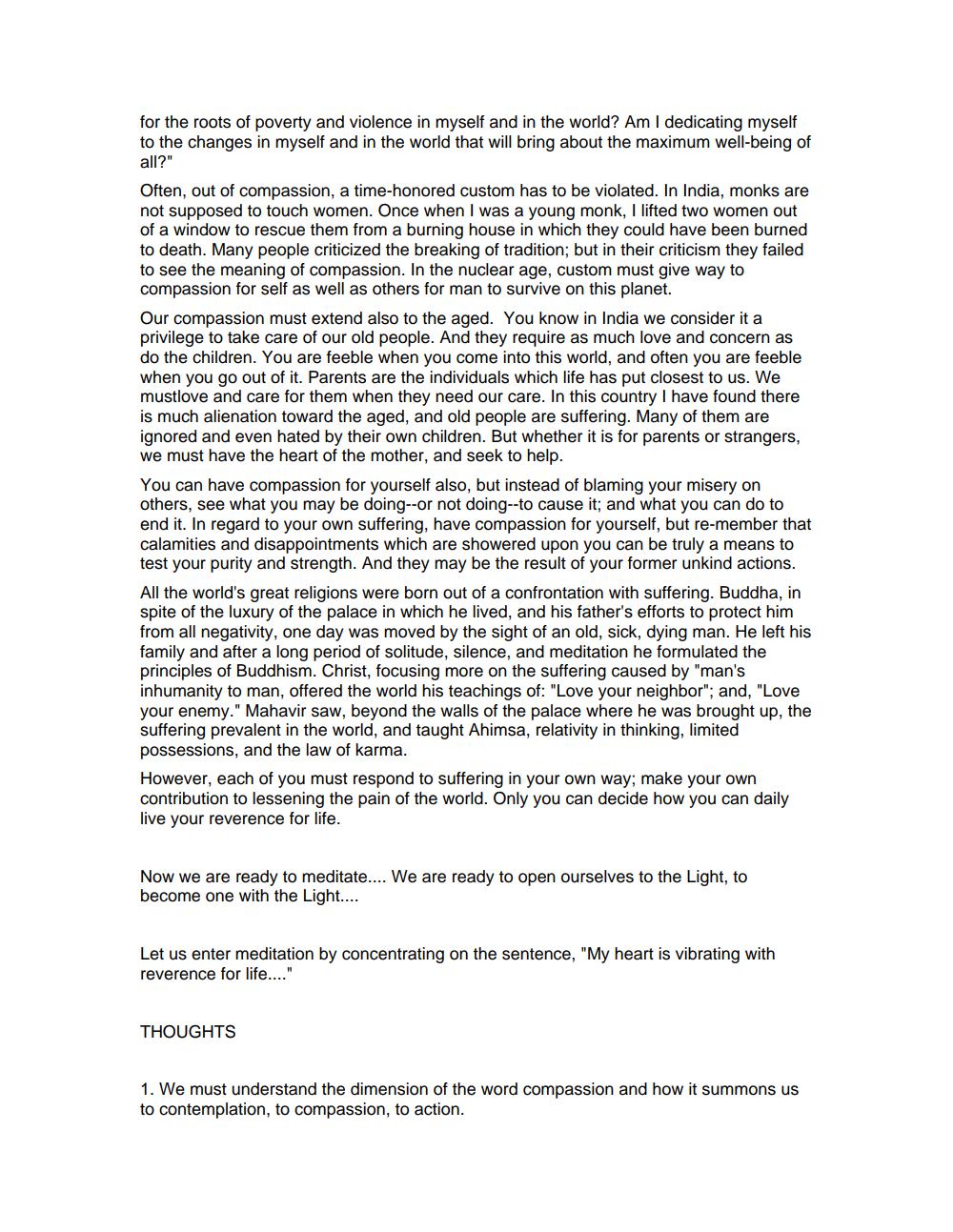________________
for the roots of poverty and violence in myself and in the world? Am I dedicating myself to the changes in myself and in the world that will bring about the maximum well-being of
all?"
Often, out of compassion, a time-honored custom has to be violated. In India, monks are not supposed to touch women. Once when I was a young monk, I lifted two women out of a window to rescue them from a burning house in which they could have been burned to death. Many people criticized the breaking of tradition, but in their criticism they failed to see the meaning of compassion. In the nuclear age, custom must give way to compassion for self as well as others for man to survive on this planet. Our compassion must extend also to the aged. You know in India we consider it a privilege to take care of our old people. And they require as much love and concern as do the children. You are feeble when you come into this world, and often you are feeble when you go out of it. Parents are the individuals which life has put closest to us. We mustlove and care for them when they need our care. In this country I have found there is much alienation toward the aged, and old people are suffering. Many of them are ignored and even hated by their own children. But whether it is for parents or strangers, we must have the heart of the mother, and seek to help. You can have compassion for yourself also, but instead of blaming your misery on others, see what you may be doing- or not doing--to cause it; and what you can do to end it. In regard to your own suffering, have compassion for yourself, but re-member that calamities and disappointments which are showered upon you can be truly a means to test your purity and strength. And they may be the result of your former unkind actions. All the world's great religions were born out of a confrontation with suffering. Buddha, in spite of the luxury of the palace in which he lived, and his father's efforts to protect him from all negativity, one day was moved by the sight of an old, sick, dying man. He left his family and after a long period of solitude, silence, and meditation he formulated the principles of Buddhism. Christ, focusing more on the suffering caused by "man's inhumanity to man, offered the world his teachings of: "Love your neighbor": and, "Love your enemy." Mahavir saw, beyond the walls of the palace where he was brought up, the suffering prevalent in the world, and taught Ahimsa, relativity in thinking, limited possessions, and the law of karma. However, each of you must respond to suffering in your own way; make your own contribution to lessening the pain of the world. Only you can decide how you can daily live your reverence for life.
Now we are ready to meditate.... We are ready to open ourselves to the Light, to become one with the Light....
Let us enter meditation by concentrating on the sentence, "My heart is vibrating with reverence for life...."
THOUGHTS
1. We must understand the dimension of the word compassion and how it summons us to contemplation, to compassion, to action.




